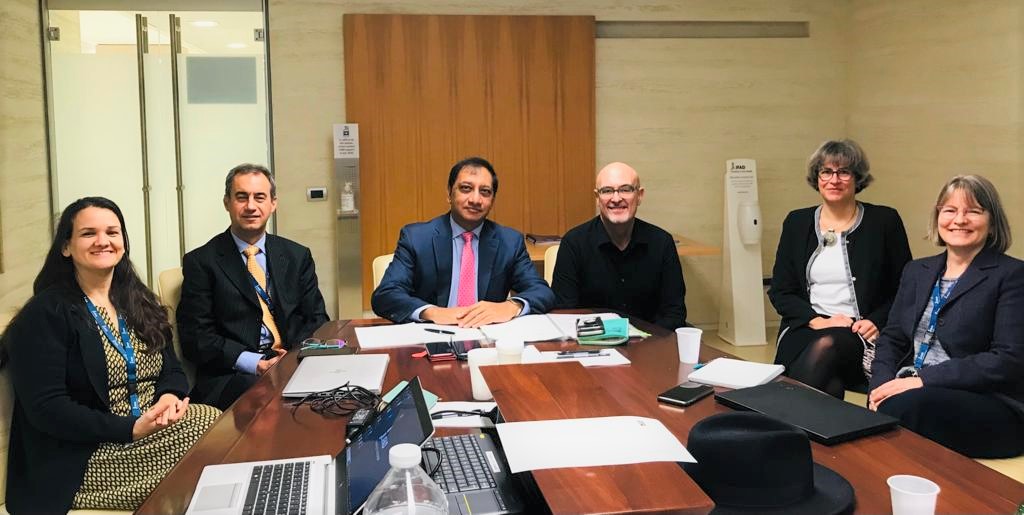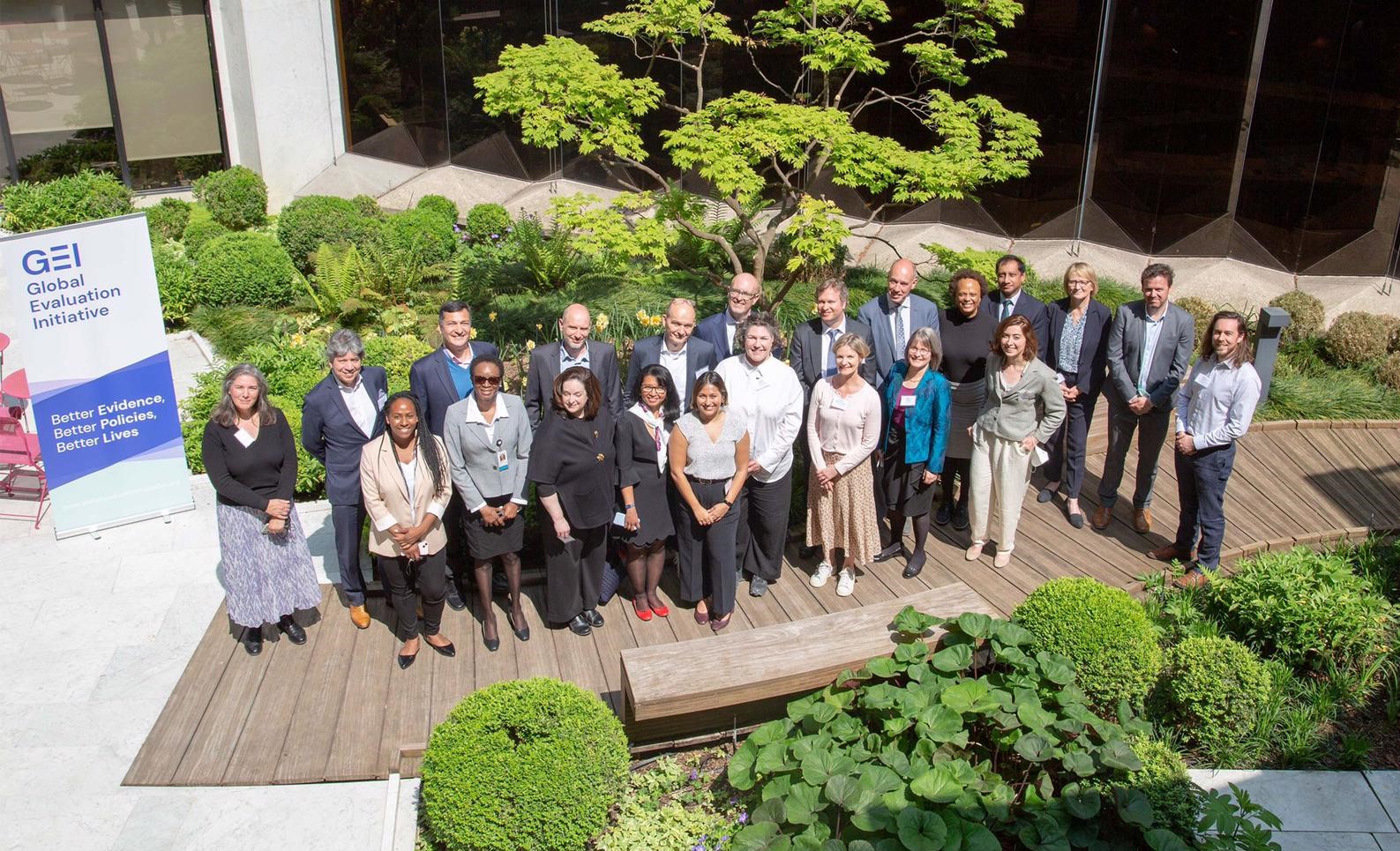Walking the talk – GEI continues to deliver on its stated commitments - IOE
Paris, 4 May 2022 – The first 18 months of implementation have set a solid foundation for the success of the Global Evaluation Initiative (GEI). Building on the accomplishments achieved thus far and addressing identified risks will be critical to maintaining GEI’s momentum. To discuss these, members of the GEI gathered in Paris, France, for this year’s GEI Partnership Council, on 3-4 May 2022. As a key partner of the GEI, the Independent Office of Evaluation of IFAD (IOE) was represented by its Director, Indran A. Naidoo.
Dr Naidoo was among the first to believe in the value of the GEI. In his former role as Director of the Independent Evaluation Office of UNDP (IEO), Dr Naidoo signed a Memorandum of Understanding with Alison Evans, World Bank Vice President and Independent Evaluation Group (IEG) Director General, in January 2020. This marked the first step towards establishing a global partnership to support evaluation capacity development. The collaboration foresaw that IEO and IEG would pool resources, share knowledge and expertise, and leverage the comparative advantages of each institution for scaling up initiatives and coordinating global efforts on building M&E systems and capacity. Ten months later, the GEI was officially born.
Much has happened since the GEI was launched in October of 2020. What started with two organizations signing an MoU, has grown to over 35 partners – organizations from all over the world, who are bringing their experience and expertise to deliver on a shared vision at GEI. Now, over eighteen months later, most implementing partners have received their financing and, across the partnership, there are many impressive activities underway. The GEI Global Team has delivered on nearly all activities proposed in 2021, successfully processed the majority of GEI grants, and established a strong brand identity for the program.
Achievements discussed during the 2022 Partnership Council include progress in the development of a culture of evidence-based decision making through the strengthening of country M&E systems, and ensuring that evaluative evidence is used to make better decisions. By virtue of a range of training and professional development activities, the GEI is strengthening stakeholders’ capabilities for managing and conducting evaluations and for managing and using M&E to enhance evidence-informed decision-making, organizational learning, and accountability. Ultimately, it is envisaged that these efforts will contribute to developing more relevant and effective policies and programs that will help countries achieve their national goals and progress towards the SDGs.
Discussions also addressed key operational matters for GEI’s future success. Risks to the programme were discussed and mitigation strategies for each were proposed. These risks include partnership, political, institutional, and financial risk, all of which are expected as GEI continues to grow, expanding the scope of the program and adding more partners.
Key outcomes of the event include the endorsement by GEI members of the overall direction of GEI’s work, its new fundraising strategy, and proposed evaluation methods for each of GEI’s business lines.
To access the GEI Annual Report 2021/2022, please click here
To access the signing of the MoU in January 2020, please click here
For further information, please contact Alexander Voccia at [email protected]



